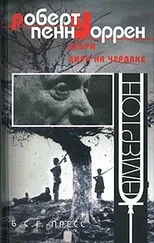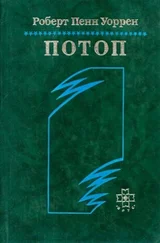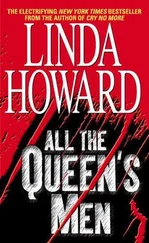He put the yellow agates on me and shook his head again. "Come to see me tomorrow, Jack. Tomorrow and every other day. But I'm giving you my answer now."
"I'm asking you, Judge, as a favor to me. Wait till tomorrow to make up your mind."
"You talk like I didn't know my own mind, Jack. That's about the only thing I've learned out of my three score and ten. That I know when I know my own mind. But you come back tomorrow, anyway. And we won't talk politics." He made a sudden gesture as though sweeping off the top of a table with his arm. "Damn politics anyway!" he exclaimed humorously.
I looked at him, and even with the wry, humorous expression on his face and the arm flung out at the end of its gesture, knew that this was it. It wasn't the dabble of the foot in the water, or even the steady deep pull of the undertow or the peripheral drag of the whirlpool. It was the heady race and plunge of the vortex. I ought to have known it would be this way.
Looking at him, I said, almost whispering, "I asked you, Judge. I near begged you, Judge."
A mild question came on his face.
"I tried," I said. "I begged you."
"What?" he demanded.
"Did you ever hear," I asked, my voice still not much more than a whisper, "of a man named Littlepaugh?"
"Littlepaugh?" he queried, and his brow wrinkled in an effort of memory.
"Mortimer L. Littlepaugh," I said, "don't you remember?"
The flesh of the forehead drew more positively together to make the deep vertical mark like a cranky exclamation point between the heavy, rust-colored eyebrows. "No," he said, and shook his head, "I don't remember."
And he didn't. I was sure he didn't. He didn't even remember Mortimer L. Littlepaugh.
"Well," I questioned, "do you remember the American Electric Power Company?"
"Of course. Why wouldn't I? I was their counsel for ten years." There wasn't a flicker.
"Do you remember how you got the job?"
"Lt me see–" he began, and I knew that he didn't for the moment remember, that he was in truth reaching back into the past, trying to remember. Then, straightening himself, he said, "Yes, of course, I remember. It was through a Mr. Satterfield."
But there had been the flicker. The barb had found meat, and I knew it.
I waited a long minute, looking at him, and he looked straight back at me, very straight in his chair.
"Judge," I asked softly, "you won't change your mind? About MacMurfee?"
"I told you," he said.
Then I could hear his breathing, and I wanted more than anything to know what was in his head, why he was sitting there straight and looking at me, while the barb bled into him.
I stepped to the chair which I had occupied and lean down to pick up the manila envelope on the floor beside it. Then I moved to his chair, and laid the envelope on his lap.
He looked at the envelope, without touching it. Then he looked up at me, a hard straight look out of the yellow agates, with no question in them. Then, without saying a word, he opened the envelope and read the papers there. The light was bad, but he did not lean forward. He held the papers, one by one, up to his face. He read them very deliberately. Then he laid the last, deliberately, on his lap.
"Littlepaugh," he said musingly, and waited. "You know," he said marveling, "you know, I didn't remember his name. I swear, I didn't even remember his name."
He waited again.
"Don't you think it remarkable," he asked, "that I didn't even remember his name?"
"Maybe so," I said.
"You know," he said, still marveling, "for weeks–for months sometimes–I don't even remember any of–" he touched the papers lightly with his strong right forefinger–"of this."
He waited, drawn into himself.
Then he said, "You know, sometimes–for a long time at a stretch–it's like it hadn't happened. Not to me. Maybe to somebody else, but not to me. Then I remember, and when I first remember I say, No, it could not have happened to me."
Then he looked up at me, straight in the eye. "But it did," he said.
"Yes," I said, "it did."
"Yes," he nodded, "but it is difficult for me to believe."
"It is for me, too," I said.
"Thanks for that much, Jack," he said, and smiled crookedly.
"I guess you know the next move," I said.
"I guess so. Your employer is trying to put pressure on me. To blackmail me."
"_Pressure__ is a prettier word," I averred.
"I don't care much about pretty words any more. You live with words a long time. Then all at once you are old, and there are the things and the words don't matter any more."
I shrugged my shoulders. "Suit yourself," I replied, "but you get the idea."
"Don't you know–your employer ought to know, since he claims to be a lawyer, that this stuff," he tapped the papers again with the forefinger, "wouldn't stick? Not for one minute. In a court of law. Why, it happened almost twenty-five years ago. And you wouldn't get any testimony, anyway. Except from this Littlepaugh woman. Which would be worthless. Everybody is dead."
"Except you, Judge," I said.
"It wouldn't stick in court."
"But you don't live in a court. You aren't dead, and you live in the world and people think you are a certain kind of man. You aren't the kind of man who could bear for them to think different, Judge."
"They couldn't think it!" he burst out, leaning forward. "By God, they haven't any right to think it. I've done right, I've done my duty, I've–"
I took my gaze from his face and directed it to the papers on his lap. He saw me do that, and looked down, too. The words stopped, and his fingers touched the papers, tentatively as though to verify their reality. Quite slowly, he raised his eyes back to me. "You're right," he said. "I did this, too."
"Yes," I said, "you did."
"Does Stark know it?"
I tried to make out what was behind that question, but I couldn't read him.
"No, he doesn't," I replied. "I told him I wouldn't tell him till I'd seen you. I had to be sure, you see, Judge."
"You have a tender sensibility," he said. For a blackmailer."
"We won't start calling names. All I'll say is that you're trying to protect a blackmailer."
"No, Jack," he said quietly, "I'm not trying to protect MacMurfee. Maybe–" he hesitated–"I'm trying to protect myself."
"You know how to do it, then. And I'll never tell Stark."
"Maybe you'll never tell him, anyway."
He said that even more quietly, and for the instant I though he might be ready to reach for a weapon–the desk was near him–or ready to spring at me. He might be old but he would still be a customer.
He must have guessed the thought, for he shook his head, smiled, and said, "No, don't worry. You needn't be afraid."
"Look here–" I began angrily.
"I wouldn't hurt you," he said. Then, reflectively, added, "But I could stop you."
"By stopping MacMurfee," I said.
"A lot easier than that."
"How?"
"A lot easier than that," he repeated.
"How?"
"I could just–" he began, "I could just say to you–I could just tell you something–" He stopped, the suddenly rose to his feet, spilling the papers off his knees. "But I won't," he said cheerfully, and smiled directly at me.
"Won't tell me what?"
"Forget it," he said, still smiling, and waved his hand in a gay dismissal of the subject.
I stood there irresolutely for a moment. Things were not making sense. He was not supposed to be standing there, brisk and confident and cheerful, with the incriminating papers at his feet. But he was.
I stooped to pick up the papers, and he watched me from his height.
"Judge," I said, "I'll be back tomorrow. You think it over, and make up your mind tomorrow."
"Why, it's made up."
"You'll–"
"No, Jack."
I went to the hall door. "I'll be back tomorrow," I said.
Читать дальше





![Роберт Уоррен - Рассказы [Компиляция]](/books/419993/robert-uorren-rasskazy-kompilyaciya-thumb.webp)


